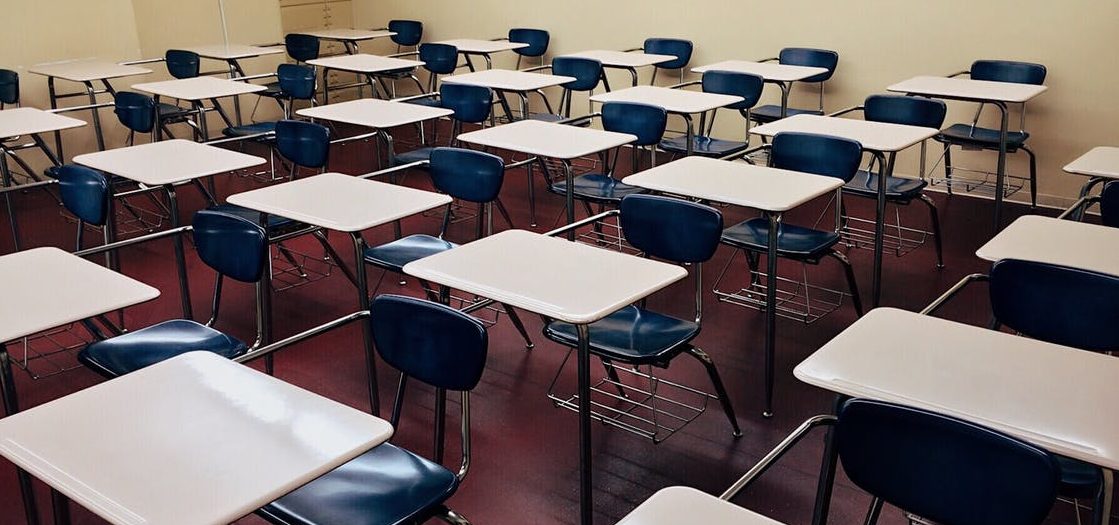Everyone has beliefs and habits that they carry into adulthood with them. Some of these are harmless remnants of childhood, like holding your breath as you go through a tunnel or skipping over cracks in the sidewalk.
Others tend to be larger and more abstract, like the environment in which a child learns or if they tend to see things in a more objective or subjective light. For many, these things are fairly set once you reach adulthood. They can only be “untaught” through conscious effort. Many children grow up immersed in the belief systems and moral compasses of their parents. Indoctrination in one way or another is inevitable.
The education system, for many, is a huge part of that indoctrination. In school, a child is told what is essential to learn. They are being handed all of the information necessary to pass tests. Those tests, combined with class participation and completed homework, make up the grades that will get the child into a good college. They are conditioned to take information and retain it without question.
In my previous article, I explained why unschooling–encouraging a child to use their natural curiosity to direct their own learning– is vital to our society.
When children are removed from a traditional school environment to be unschooled, it is highly recommended that they first go through a “deschooling process”. This process, and the need for it, is explained in greater detail by Ivan Illich in his book Deschooling Society.
Illich explains that, “The public is indoctrinated to believe that skills are valuable and reliable only if they are the result of formal schooling.” Through deschooling, a child sheds the belief that learning can only occur when it is being fed to them or overseen. It paves the way for an entirely new way of thinking.
Deschooling is just as important for the parents as it is for the child. The parents often find themselves grappling with what they think versus what they have been told to think. Their own indoctrination, at this point, is deeply rooted and much harder to reverse. Unschooling is counter-cultural and, as such, the parents will often face quite a bit of pushback from the culture in which they live.
Usually, this will come when a child is seen outside of school during school hours. A stranger at the grocery store, library or playground will ask why the child is not in school and be surprised, even incredulous, at the answer.
Family members may think that the parents are doing a disservice to their child by keeping them away from all that the school system has to offer. When this happens, nothing has gone wrong. If anything, it should serve as a reminder to the parents that they are choosing to unschool for a reason.
This process is not exclusively beneficial for school-aged children and their families. Any adult can and should go through a deschooling, or deprograming, process. Since school is such a large part of a child’s life, and school programs a child to believe that essential information can only be that which is handed to them, some part of that mentality must be carried into adulthood. The news, various authorities and preconceived notions take the place of teachers in the adult world. So many adults are being programmed, from childhood, to accept information from authority and process it as fact.
Deschooling for a child is, essentially, helping them to clear the regimented, traditional school from their system. This process does not have a time limit. The learning will begin when the child is ready, when their natural desire to learn is reawakened.
For the parent, deschooling is a letting go of the belief that there needs to be a system. There are no grades, no outside authority to tell them or their child what is essential to know and no tests to mark progress. It is a complete trust in the child’s innate desire to learn.
When a parent and child are deschooling, it could look like:
- Trips to playgrounds and museums
- Playdates with friends
- Listening to music
- Painting and coloring
- Walks and hikes
- Clearing a busy schedule
- Watching a movie
- Reading together
The purpose of these seemingly unrelated things is to help the child (and parent) let go of dependence on a curriculum to learn what is necessary.
When an adult sets out to deschool, or deprogram, themselves it could look like:
- Doing something enjoyable for the sake of enjoyment, without an end goal in mind
- Accepting feelings and behaviors without assigning judgments to them
- Clearing the calendar of all unnecessary obligations
For both children and adults, this process is imperative to shedding the dependence on outside sources for information and approval or disapproval. It is the beginning steps of a departure from a set, societally approved way of living and thinking.
Deschooling is the beginning steps toward a lifetime of creativity, love of learning and self-trust.
This article was sourced from The Daily Bell.
 By
By